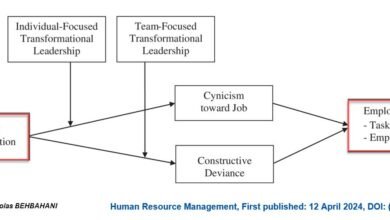
By | Dave Ulrich | Speaker, Author, Professor, Thought Partner on HR, Leadership, and Organization
What can HR professionals contribute as “Humanitarian Response” partners in this present (and other) crises?
When crises occur in personal relationships (e.g., loss of someone we love), professional roles (e.g., career transition), or society in general (e.g., natural disaster), most of us want to help. But we are often not sure how.
The Russian assault on Ukraine has roused feelings of concern and a desire to help around the world. The unprecedented UN vote of 141 to 5 condemning Russian aggression shows the world’s unity about this horrific action. This invasion has created an enormous humanitarian crisis both within Ukraine and for the over 3 million (and counting) refugees fleeing their homes seeking safety.
Many humanitarian aid organizations are distributing food, shelter, clothing, and other services to offer immediate help to those displaced individuals. Many individuals are making personal and family contributions through charitable donations of both money and time. What else might organizations and HR professionals contribute?
We recently held a webinar to explore how HR professionals as a worldwide community might unify to respond to this crisis. With input from thoughtful colleagues (see figure 1), we have identified four levels at which HR professionals can contribute to this and other crises:
1) Crisis responder: Recognize general principles for responding in a crisis.
2) Individual/employee caregiver: Care for ourselves so we can care for others.
3) Organization/HR architect: Design and deliver HR practices to shape organization culture and governance.
4) Leadership coach: Help business leaders at all levels provide direction, create meaning, and engender hope.
This post raises awareness of HR’s emerging role as a Humanitarian Response partner and offers a number of specific actions that can help individuals and organizations make progress in this and other crises. For a download of the webinar, see: https://hr-congress.com/2022/03/17/rise-how-human-resources-can-lead-the-organization-through-the-current-humanitarian-crisis-and-beyond/

1. Crisis responder. Recognize general principles for responding in a crisis.
Regardless of the type of crisis (war, natural disaster, pandemic, civil unrest, digital evolution, mental health), four basic principles help people respond (figure 2).

1. Recognize complexity. Crisis response requires a systemic approach that includes many stakeholders (e.g., humanitarian aid agencies, government services, individuals, families, organizations, and HR professionals). The separate contributions of each stakeholder may be combined into organization-wide initiatives around CSR, diversity, or philanthropy to have a sustainable impact. Complexity also requires navigating paradoxes often inherent in crises:
- Attend to short-term needs (food, shelter, clothing) and longer-term financial security and independence.
- Help oneself and one’s family and help others.
- Care for both physical needs and emotional/social needs.
- Contribute both as individuals and as organizations.
2. “Lift where you stand.” Dieter F. Uchtdorf, an ecclesiastic leader, shares a true story about people trying to move a heavy grand piano. All their efforts were inadequate until someone said, “stand close together and lift where you stand.” It seemed too simple. But it worked. In a crisis, small and simple actions can accumulate to create unified solutions when each of us lifts the part of the load in front of us. We can start small with low-hanging fruit (what we can most easily influence) and then tackle bigger problems together.
3. Give people a choice. After enduring a crisis over which people have little control, being given a choice is humanizing and empowering. For example, an aid worker offered a young refugee girl the choice of a warm down jacket or a bright pink sweater. While the jacket was the sensible choice in the mind of the aid worker, the young girl chose the sweater. Her emotional needs were as important as her physical needs in restoring not only warmth but hope.
4. HR provides human capability. HR professionals are caregivers for individuals, architects for organizations, and coaches for leaders (see figure 3). HR professionals become Humanitarian Resource partners by delivering human capability in all three ways, each discussed in the remainder of the article.

2. Individual/employee caregiver: Care for ourselves so we can care for others.
Until we take care of our own emotional needs, we cannot care for others (e.g., in an airplane crisis, “put on your mask first before helping others”). HR professionals, as frontline emotional caregivers, need to care for themselves and their families so that they can care for employees and others.
Both caring for oneself and helping others often start with basic needs for physical and psychological safety: sleep, food, clothing, shelter. In this refugee crisis, many humanitarian agencies are offering these basic services. HR can help employees who are feeling the trauma and stress of this crisis by reminding them of these basics first.
Once basic physical needs are addressed, connection is our next universal need. HR professionals can provide connections that empower others by:
- Being calm ourselves, then suggesting tools for emotional regulation: quiet breathing, listening to music, singing, writing, meditating, praying, walking.
- Being curious by asking empowering questions (e.g. “What do you need/want?” “What could we try?” “Where could we start?” “How can I help?”). Then listen, explore options, co-create a plan, and offer support.
- Being compassionate by disrupting the tendency for shame and blame with non-judgmental empathy, understanding, and kindness.
- Encouraging resilience by helping others explore past challenges they’ve faced and how they learned from setbacks, lived their values, or connected meaningfully with others.
- Helping employees find hope in a better future by focusing on the certainty of values and relationships even in an uncertain world.
HR professionals who take care of themselves and help employees take care of themselves help everyone find hope, even in difficult times.
3. Organization/HR architect: Design and deliver HR practices to shape organization culture and governance.
HR professionals architect organizations to turn individual action into collective, sustainable solutions. The organization work of HR can be divided into five domains of specific actions HR can pursue in responding to a humanitarian crisis (figure 4).
Across the five domains of figure 4, we have curated 45 specific actions that HR professionals can access during this (or other) crisis. Specific actions for each of these five domains are in the figures below. Figure 5 reviews actions HR professionals can do to create a culture of caring and competitiveness. Figure 6 reviews actions around people, rewards and benefits, communication, and work policies.
We are grateful for so many who have helped provide this 45-item menu of actions that HR professionals could propose and implement to architect an organizational response in this crisis. This list can be expanded as employees add new ideas and by observing what other organizations try. From this list, business and HR leaders can select and implement actions that work best for their specific circumstances.



4. Leadership coach: Help business leaders at all levels provide direction, create meaning, and engender hope.
In a crisis, employees look to their leaders for inspiration and confidence. In the current humanitarian crisis, Volodymyr Zelensky and his wife, Olena, have emerged as inspirational leaders. In our research at The RBL Group, we have identified five domains of effective leadership called the Leadership Code. In figure 7, we suggest specific actions in each of the five domains to help leaders develop humanitarian business attributes. HR professionals as Humanitarian Response partners can select, promote, coach, train, develop, motivate, and support these business leaders by demonstrating the competencies of effective HR professionals that we have reported in our research.

Conclusion
Mihaly Nagy began our HR humanitarian webinar with the wise words “This is one webinar I would prefer not to have to offer, but as HR professionals, we need to unite to respond to this crisis.”
None of us want to face the trauma of war and subsequent refugee challenges. However, we cannot afford to look away. We hope this post raises awareness of how the global HR community can unite to become Humanitarian Response partners who make a difference through dozens of concrete actions. “Now is the time” for HR to “rise to the opportunity” and contribute in meaningful ways.
Republished with permission and originally published at Dave Ulrich’s LinkedIn






